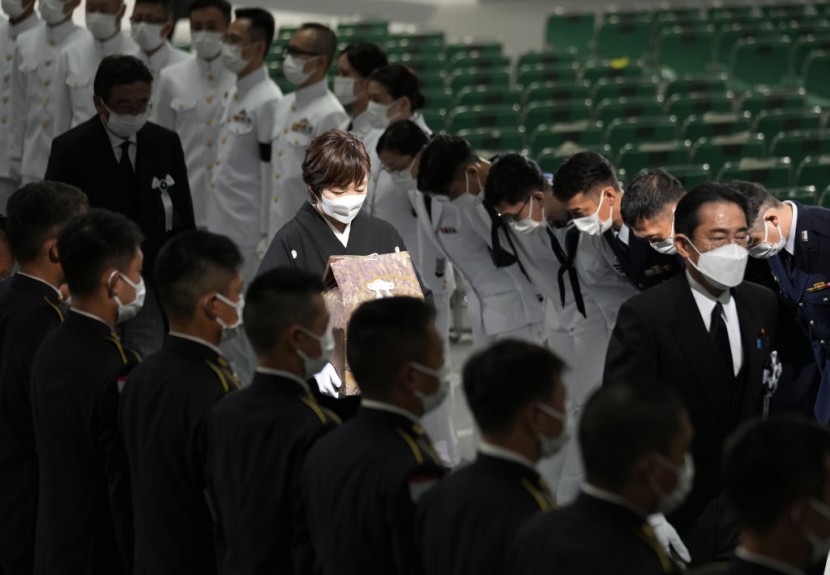
Japan performed an extravagant state funeral for former Prime Minister Shinzo Abe on Tuesday, despite public criticism of the expenditures of the event in a country divided about the legacy of the assassinated leader.
Abe was shot in close range during a campaign rally in Nara in July. The incident shocked a nation where crime involving firearms is infrequent.
International leaders like US Vice President Kamala Harris, Australian Prime Minister Anthony Albanese, and Indian Prime Minister Narendra Modi were among the more than 4,300 guests at the ceremony at the Nippon Budokan Arena in Tokyo, according to a report from CNN.
Abe Gone Too Soon
The Japanese government presented a video homage to Abe's life and career while his ashes were carried into the location. Then Prime Minister Fumio Kishida delivered a funeral speech praising the bravery and devotion of Shinzo Abe.
In his 12-minute eulogy, Kishida commended Abe as an ambitious statesman with a clear direction for postwar economic advancement and the growth of Japan and the world.
The Japanese prime minister emphasized Abe's efforts to sustain a "free and open Indo-Pacific" to counter China's advancement.
Former Prime Minister Yoshihide Suga, Abe's right-hand man for many years, also spoke before participants placed floral gifts and bowed in succession.
As a 1993 lawmaker, Kishida said Abe "should have lived much longer" to serve as a "compass" to guide the "future direction of Japan and the rest of the world for 10 or 20 more years."
Harris sat in the third row next to US Ambassador to Japan Rahm Emanuel throughout the ceremony. They afterward placed chrysanthemum flowers on a table before the pedestal, according to a report from AP News.
Abe was slain while giving a campaign speech on a street in Nara, a city in western Japan, and was cremated in July following a private funeral at a Tokyo shrine.
Critics Stage Protest at the Controversial Leader's Funeral
During the state funeral, Tokyo implemented its highest level of security, particularly around the venue, Budokan Hall.
A nonviolent protest downtown occurred, where hundreds of people marched towards the hall vicinity while some beat drums, others shouted, and held signs and banners.
One protest participant Kaoru Mano claimed Shinzo Abe "has not done a single thing" for ordinary citizens.
The government declares that the ritual is not a way of forcing anyone to honor Abe.
Hours before the service, hundreds of individuals with bouquets waited for blocks to pay respects in a park.
The funeral was skipped by the majority of Japan's opposition parties. Some claim the ceremony served as a reminder of how imperialist regimes in the years before World War I utilized public memorials to fuel patriotism.
Reuters reported that the killing of Abe on July 8 led to a flood of information about ties between lawmakers in the ruling Liberal Democratic Party (LDP), which he once led, and the Unification Church, which some people call a cult. This led to a backlash against the current prime minister, Fumio Kishida.
Kishida's approval ratings have plummeted due to the scandal, prompting him to issue an apology and commitment to terminate party links to the contentious congregation.
Related Article : Prince Andrew Faces Dark Future After Royal Expert Reveals That King Charles III Has Zero Plans To Include Duke in Monarchy
© 2025 HNGN, All rights reserved. Do not reproduce without permission.








